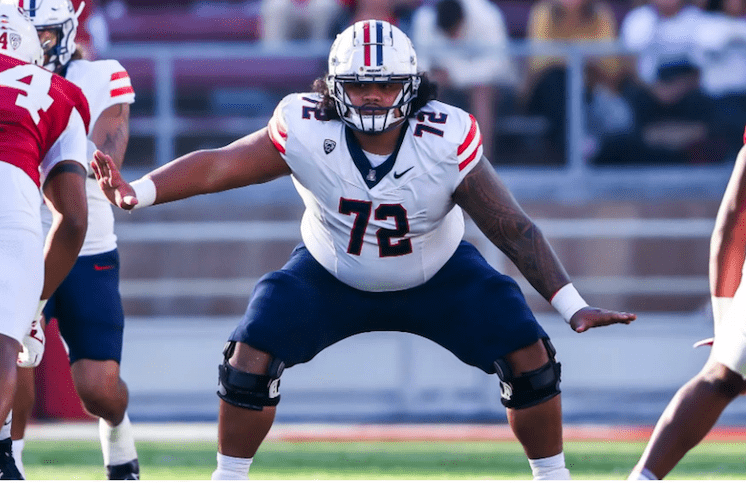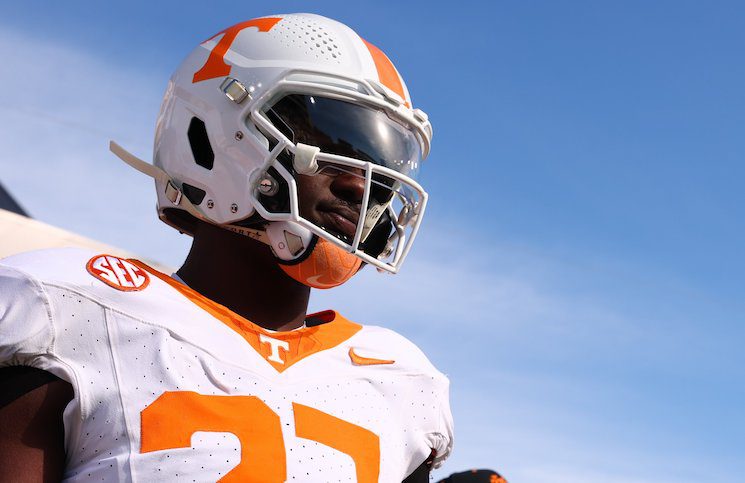
Tennessee basketball (10-2) begins SEC play Wednesday evening at Ole Miss. The Vols are off to a strong start to the season, moving past a bad early season loss to Colorado to earn marquee wins over USC, Kansas and Maryland.
The Vols have dealt with injuries throughout the first two months of the season and while Santiago Vescovi is back and healthy, Josiah-Jordan James remains “game-to-game” with a knee injury as conference play begins.
Rick Barnes’ eighth Tennessee team enters conference play as the highest ranked SEC team in the AP Poll and has as good a chance as anyone to win the conference title.
Here’s five things we’ve learned and questions we still have as Tennessee opens SEC play Wednesday.
The Defense Is Only Getting Better
Before the Vols started preseason practice, I wondered whether they could continue their recent run of elite defense that saw them finish in the top five of KenPom adjusted defensive efficiency in each of the last two seasons.
Tennessee returned an abundance of strong defenders and veteran leaders but “defensive coordinator” and associate head coach Mike Schwartz left Knoxville in the offseason to become the new coach at East Carolina.
No Schwartz, no problem for Tennessee’s defense. In fact, the Vols have only gotten better on that end of the floor. Tennessee enters conference play with the nation’s No 1 defense. The gap between Tennessee and No. 3 Rutgers in adjusted defensive efficiency is the same as the gap from the No. 3 defense to No. 17 defense.
How have the Vols gotten better defensively?
Jonas Aidoo’s elite rim defense combined with the return of Olivier Nkamhoua has made the Vols all the more formidable. Additionally, Tennessee is still elite at recording steals and forcing turnovers. The Vols lost Kennedy Chandler to the NBA but Jahmai Mashack’s emergence has given the Vols another elite perimeter defender.
Balanced Scoring With No Go-To Guy
Tennessee basketball has a lot of players that can beat you. Tennessee basketball doesn’t have one player who strikes complete fear into every opponent it plays.
The Vols’ offense has been extremely balanced this season. Seniors Santiago Vescovi and Olivier Nkamhoua lead Tennessee with 11.8 points per game. Tennessee’s top five scorers average within 1.3 points of one another.
There are good things that come with that, the best is how well Tennessee passes and shares the ball. The Vols are an unselfish basketball team and the numbers back it up. Tennessee is assisting on 69% of its baskets this season, the highest percentage in any college basketball.
“It has its benefits with scouting reports. Just knowing we have so many threats that you have to guard and you have to respect and if you don’t that player will have their night,” Jahmai Mashack said of the Vols’ balance. “I think it helps because we’re all unselfish and sometimes we have guys that need to be more selfish offensively and some guys that have the role and want to get into that role and I think it benefits us all that we’re all unselfish to the point that we know whoever has it that night is going to get the ball.”
The downside is simple, having a go-to scorer is huge in college basketball where some days shots are falling but other games teams can’t score.
It could particularly cost the Vols on the road where stars shine through and role players often struggle. That aspect of the balanced offense remains a question to date as the Vols have played just one true road game. The Vols played well offensively in its narrow loss at Arizona but time will tell whether the offensive balance will be a good or bad thing on the road.
More From RTI: Josiah-Jordan James Status Remains The Same As Tennessee Opens SEC Play
Tennessee Is A Really Good Offensive Rebounding Team
Tennessee has been a mediocre rebounding team in recent years. The Vols were poor on the glass during the 2019-20 season but besides that, Tennessee has been solid but nothing special during Barnes’ tenure.
This season, Tennessee has become an elite offensive rebounding team. The Vols are still average on the defensive glass, giving up second chance opportunities just under the national average. But on the offensive glass, Tennessee excels.
Tennessee is grabbing offensive rebounds on 39.9% of its possessions it gets a shot off. That percentage is the nation’s very best and is providing a boost for an inconsistent offense.
Barnes has put an emphasis on the offensive glass due to the frequency in which Tennessee attempts three-pointers and it’s paid off. The Vols being as effective as they’ve been on the glass is especially impressive with Josiah-Jordan James, perhaps the team’s best rebounder, in-and-out of the lineup with a knee injury.
There’s plenty of reasons to believe Tennessee’s offensive rebounding success is sustainable. Chief among them is the Vols’ dominance on the offensive glass against Kansas (15 offensive boards) and Maryland (21 offensive boards).
Another reason to believe the success is sustainable is the emergence of Tobe Awaka. The freshman is Tennessee’s best rebounder and is starting to earn a bigger and more consistent role. With Awaka earning more minutes, Tennessee’s offensive rebounding efforts should only get better.
Do The Shooting Numbers Improve?
Tennessee has not shot the basketball particularly well this season, but Barnes insists that the Vols are a good shooting team.
After shooting 36% from three-point range last season, Tennessee is shooting just 33% from three-point range this season with heavily overlapping roster personnel. Will the numbers improve?
Tennessee was in a similar spot last season entering SEC play with the Vols struggling to shoot from the perimeter and Barnes insisting they were better than the numbers indicated. And the veteran head coach was correct. Tennessee’s perimeter shooting improved and the Vols’ offense turned a corner as the calendar turned from January to February.
Another reason to believe Tennessee will shoot the ball better is Santiago Vescovi’s struggles. Vescovi is one of the nation’s top three-point shooters but is making only 32% of his three-pointers this season. That number was south of 30% before the senior made all four of his three-point attempts against Austin Peay.
Vescovi is too good a shooter to not have better numbers in the final 10 weeks of the season. Since he shoots more triples than anyone else on the roster, Tennessee’s team numbers are bound to improve with Vescovi’s.
Why would they not improve? The most obvious reason would be that the shooting we’ve seen is truly what Tennessee is as a shooting team. Maybe the departure of Kennedy Chandler and his ability to get shooters open is a bigger deal than expected.
Either way, Tennessee’s shooting prowess is worth watching in conference play and it will have major ramifications on the success of the team.
Does Tennessee Have Enough Ball Handling?
Turning the basketball over has sneakily been a weakness for Tennessee this season. The Vols rank 243rd nationally turning it over on nearly 20% of their possessions this season.
Tennessee has good guards. Despite his previously mentioned shooting struggles, Vescovi is playing very well in his senior season. After a slow start to the season, Zakai Zeigler is starting to find his rhythm. For someone who didn’t play point guard in his four seasons at Indiana State, Tyreke Key has played well in extended minutes at point guard.
But behind those three players, Tennessee doesn’t have a reliable ball handler. As solid as Zeigler has been, he’s not played like an elite point guard that can take over the game with his feel and calming presence.
Without an elite point guard, it feels like the Vols may be short one ball handler. Time will tell if that’s the case but taking care of the ball appears to be a potential weakness for Tennessee as they begin conference play.



